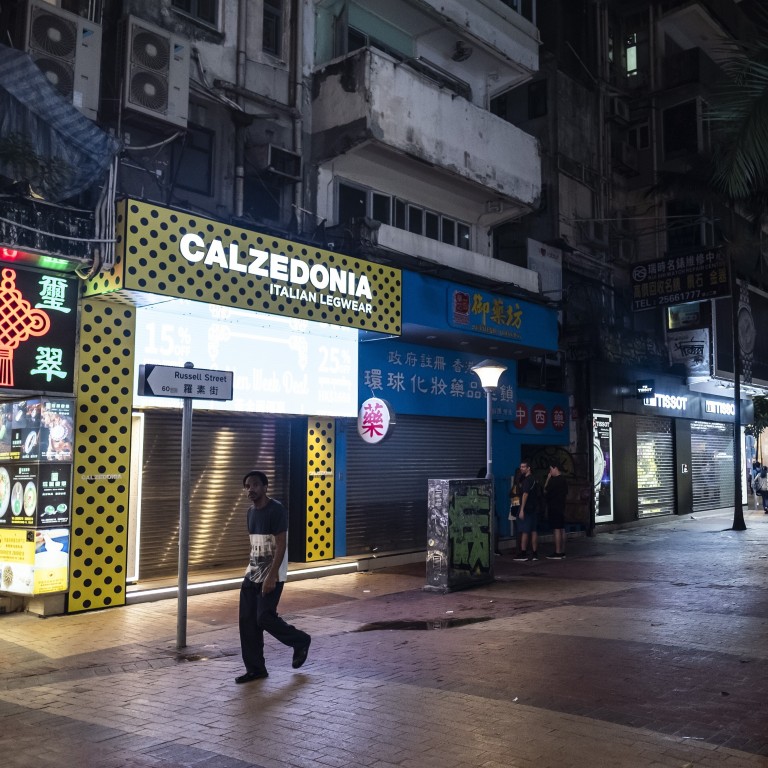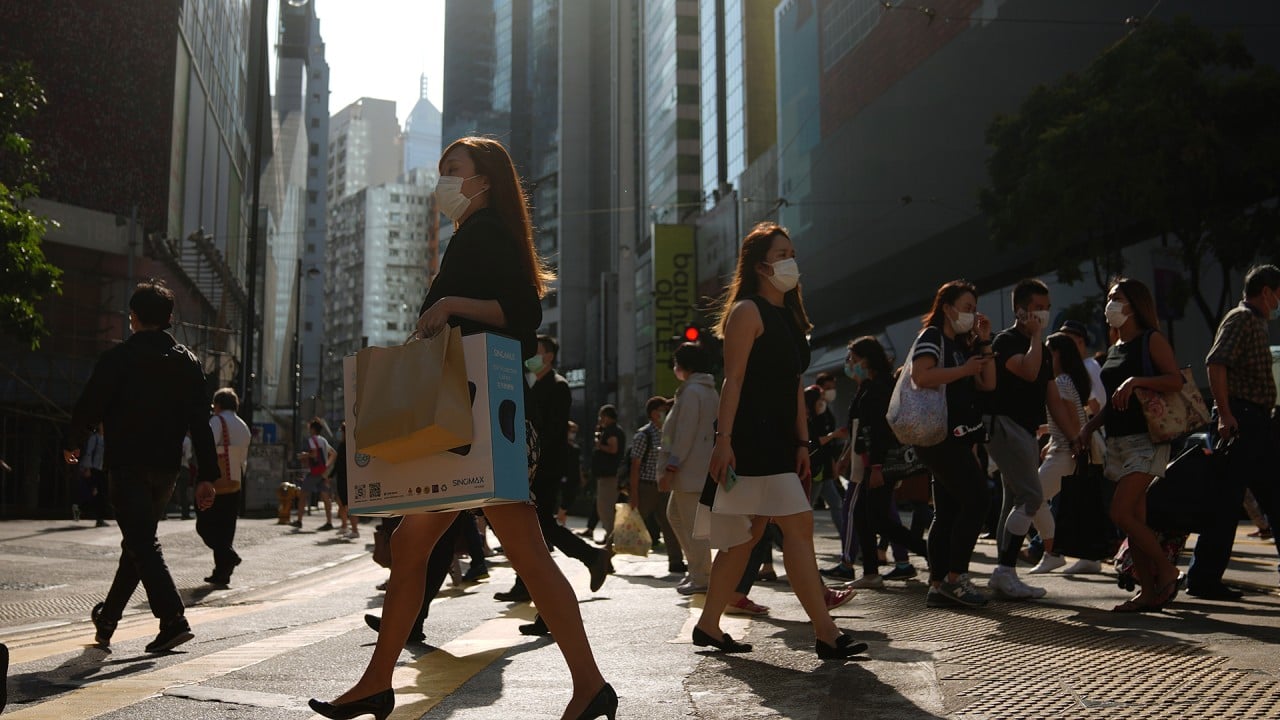
Rising vacancy, sliding rents in Hong Kong signal cracks in world’s most expensive retail strip to persist into new year
- Landlords and retailers on Russell Street are facing a tough ending to the year as vacancy jumps, sales slump, analysts say
- Shops vacated by global brands may be tenanted by new players that count on local consumers instead of tourist dollars, devaluing rent premium
Global brands from Prada to Rolex and Victoria’s Secret have in the past year vacated their space near or along Russell Street in Causeway Bay – whose rents exceeded those in New York, London or Paris at the peak of the cycle – as the economy suffered from political upheavals and public health crisis.
Those vacant shops could end up being absorbed by mass market fashion stores or supermarket chains, potentially devaluing rent premium, he added. The pandemic and dwindling tourist arrivals have been a major blow and local consumers alone could no longer support big brands, he added.
Without the power of tourist dollars, Hong Kong has recorded steep declines in retail sales for 18 straight months, according to official statistics. They amounted to HK$187 billion (US$24 billion) this year through July, or HK$26.7 billion a month, compared with an average of HK$36 billion a month in 2019.
“Now that the big brands have left the scene, it is quite difficult to find new tenants,” said Tony Lo, director of shops at Midland IC&I. They are unlikely to be leased out this year as the pandemic has not been resolved, he added. “I’m not very optimistic. Many of the shops in Causeway Bay cater to individual travellers [mostly from mainland China].”

04:10
Hong Kong retailers should create experiences for local shoppers to survive with ‘zero tourists’
Emperor International, one of the bigger landlords on Russell Street, said some of its units “are for lease now,” according to WhatsApp reply to questions from the Post. The firm has “been in touch with different tenants,” it added.
Shop vacancy rate in Causeway Bay has risen to 11.6 per cent in August, according to data compiled by Centaline Commercial, more than tripling the level in January. The rate in Central has surged to 20.4 per cent from 8.1 per cent over the same period, and to 16.5 per cent from 10.5 per cent in Tsim Sha Tsui.
Emperor, biggest landlord on world’s most expensive shopping avenue, reports big earnings setback
“Causeway Bay has almost zero tourists and people are reducing their outings,” said Raiky Wong, director of shops at Centaline Commercial. “The streets seem deserted these days.”
Hong Kong is not alone in bearing the brunt of the Covid-19 pandemic. Twenty out of 22 Asia-Pacific cities tracked by Knight Frank reported a drop in valuations and forecasts of prime retail property in the first half of this year.
The bleak outlook suggests rents will weaken in the coming months, said Lee of Bridgeway Prime Shop Fund Management, who regularly buys and sells shoplots in the city.
Rents along Russell Street have fallen by two-thirds from around HK$3,000 (US$387) per sq ft in 2013 to HK$1,000 currently, Lee said. They could bottom out at HK$500 per sq ft by year-end before some signs of recovery after the Lunar New Year in February, he added.
Shop owners may be pressured to accept offers even if the rents are lower to generate cash flow, according to Lo of Midland. Some have offered to take up short-term leases this year as many businesses have low visibility on the recovery prospects.
New tenants that decide to take over the vacant space will be banking on neighbourhood spending to survive, said Lee of Bridgeway. These would include mass market fashion retailers or high-end supermarkets selling imported foods like Japanese wagyu beef, he added.
For Russell Street’s big brands, retailers can no longer sustain their businesses without the tourist spending power. “They definitely cannot sustain by just relying on local consumption,” Lee said.

